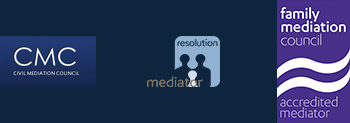It is a commonly held misconception that mediation agreements, also referred to as mediation settlements, are not legally binding. That is not the case. A mediation settlement can, if the participants so desire, form a legally binding contract. Should one of the participants break the terms of that contract, the dispute can be taken back to further mediation or, more likely, the disadvantaged participant can at that stage enter into the court process and sue not on the original contract, but rather on the contract formed in the settlement process. A mediation settlement is a contract, and so the effect of breaking it is the same as the effect of breaking any other contract.
Having said that, it is very rare for one of the parties to the settlement not to live up to or carry out what was agreed in the mediation settlement. The reason for this is that mediation is a voluntary process, wherein the parties to a dispute agree that they wish to sit down and discuss their differences and find a solution. This fact alone helps them to work towards a mutually acceptable settlement, and the settlement represents something in which they have invested time and effort, and which constitutes the outcome of a series of conversations and compromises. It is the fruit of combined labour, and each participant feels a sense of ownership. There is also a strong moral obligation to honour its terms. Because the participants write the contract themselves, with the help of the mediator, they are much more likely to feel obliged stick to what was agreed. The parties to the dispute own the agreement; they write it, and it is theirs.
Hampshire Mediation never advises participants to sign any agreement if they believe they are not able to live with its terms. Whether or not a participant signs the agreement is entirely a matter for them. The contract is a document that is written by both participants to a dispute. Nothing goes into that agreement to which one or other participant strongly objects.
The function of the mediator is to ensure that all concerns that each of the parties have are shared within the mediation before any agreement is attempted. This encourages a mutual understanding of the situation. This is a gentle, relaxed process of bringing into the discussion anything that participants are willing to share, which may help shed light on the dispute and help the other participants see another side and thus a way forward out of the dispute.
The purpose of the mediation agreement is to map a new way forward for the participants to a dispute. It is not about reparation or punishment for previous events.


